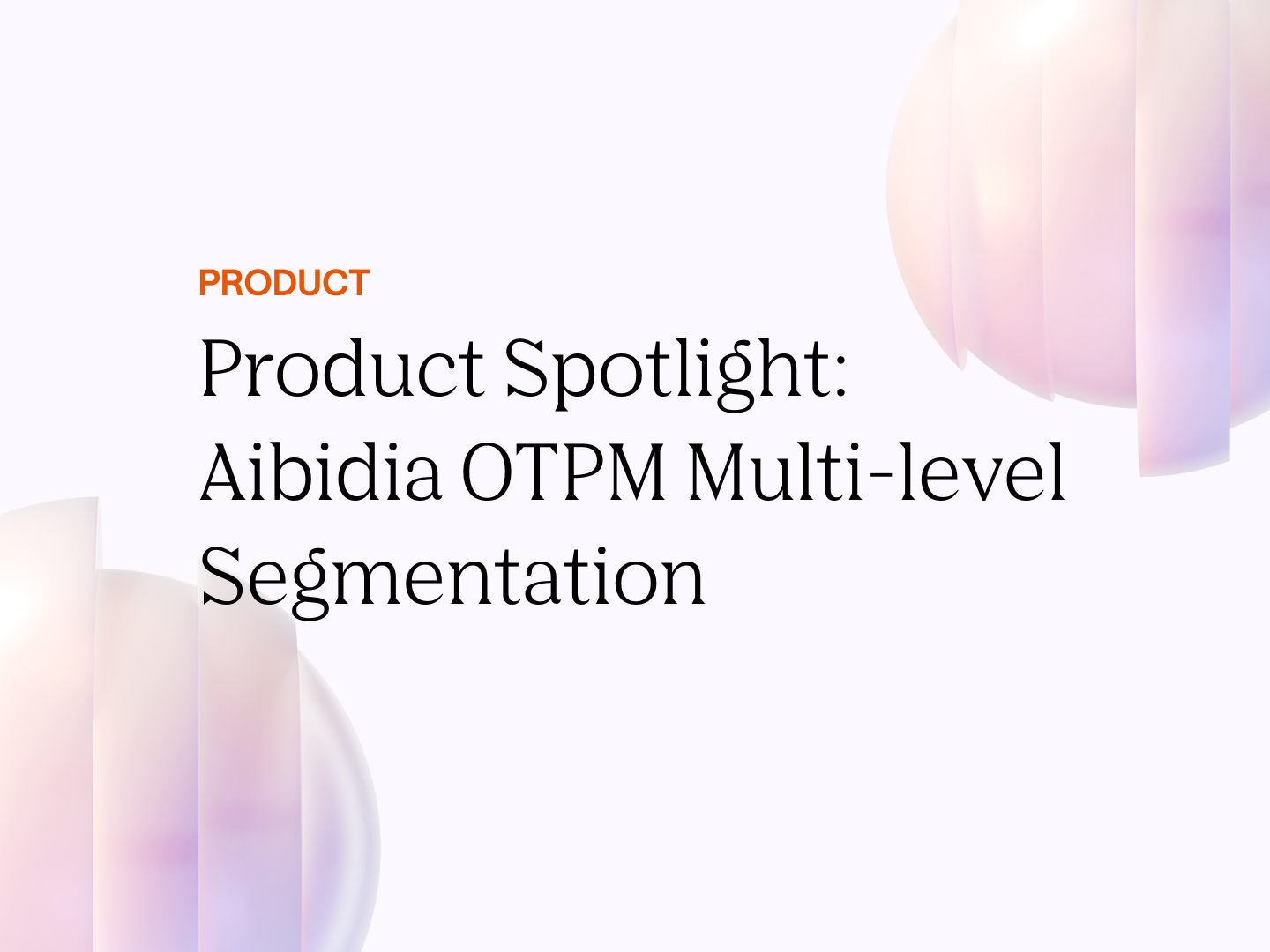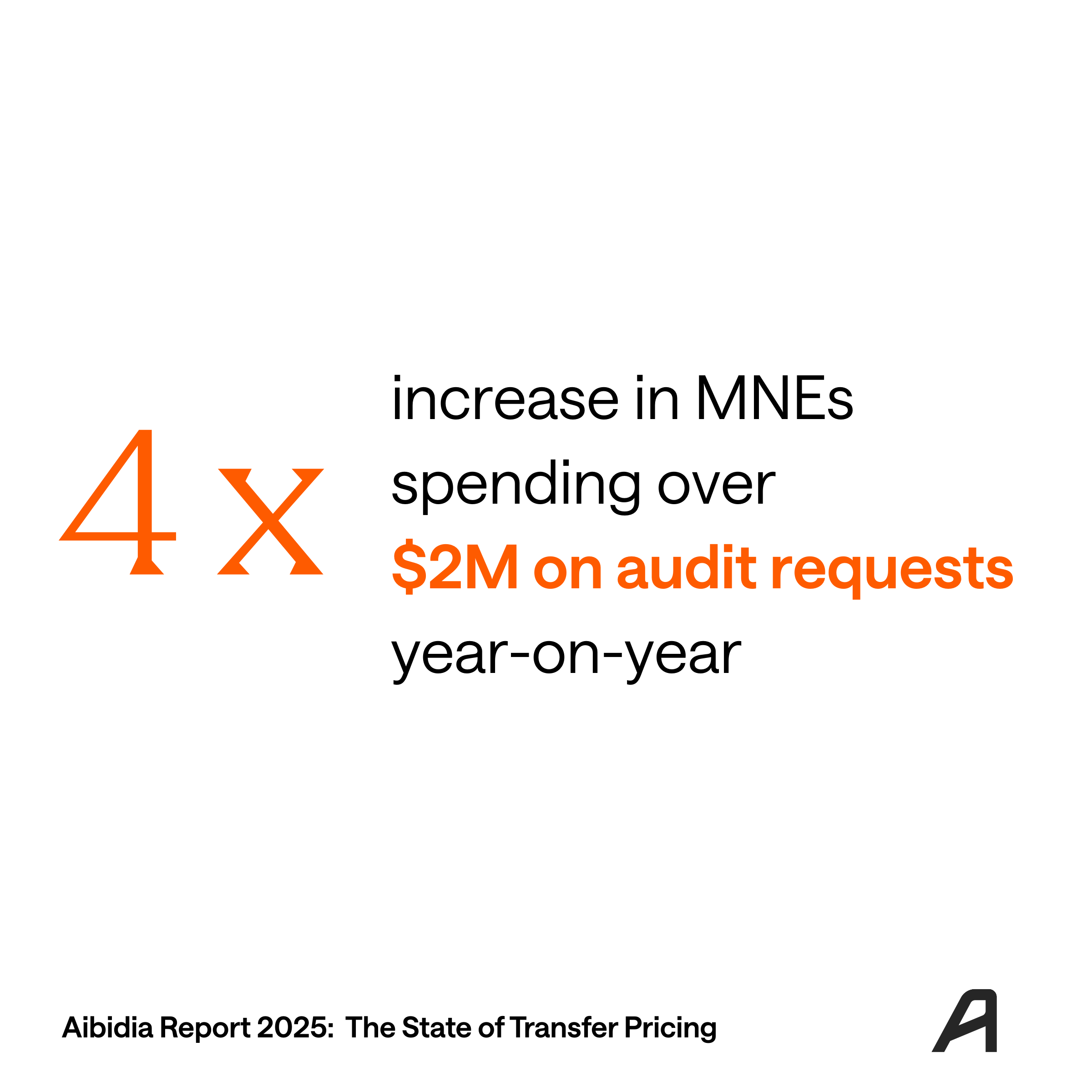.png)
Aibidia continues to set the standard for end-to-end transfer pricing automation. Today, we’re spotlighting how the German Transaction Matrix (GTM) is handled in the Aibidia Transfer Pricing Documentation (TPDoc) solution, automatically and fully aligned with Germany’s latest documentation requirements and your overall transfer pricing data. Working in synergy with other Aibidia solutions, it helps users meet evolving regulatory obligations while ensuring documentation accuracy and consistency across the Aibidia platform.
Meet Germany’s new documentation requirement - automated on Aibidia platform

Germany has introduced a mandatory “Transaction Matrix” as part of transfer pricing documentation under Section 90 (3) of the German Fiscal Code (AO). From 1 January 2025, taxpayers must submit the matrix within 30 days of receiving a tax audit announcement. For tax audit periods prior to 2025, a transaction matrix must be submitted only if a tax audit announcement is issued in 2025.
Aibidia supports the German Transaction Matrix natively inside TPDoc, enabling Tax and TP teams to generate a compliant matrix directly from the data they already maintain in the Aibidia Platform, reducing manual effort and submission risk.
What is the German Transaction Matrix?
The Transaction Matrix lists cross-border related-party transactions with additional data points used by the German tax authorities for risk-based audit selection. The Federal Ministry of Finance (BMF) has published example formats and administrative guidance on content, timing, and retroactive application in 2025. Failure to provide the matrix triggers a penalty fine of €5,000. Read more here.
How Aibidia Automates the Preparation of the German Transaction Matrix
Without automation, preparing the Transaction Matrix becomes a time-consuming and costly manual exercise, with data scattered across teams and systems, increasing the risk of errors and documentation inconsistencies.
Aibidia addresses all these challenges by providing one connected, automated platform where compliance with Germany’s new requirements happens automatically within the platform. The Transaction Matrix is generated with a few clicks from the same dataset as the Local File, with no need for templates, uploads or extra work.
The German Transaction Matrix in Aibidia TPDoc shows what that true connected TP automation looks like: solving data challenges at the source, harmonising them, and letting that data flow seamlessly across every compliance output, from Local Files to jurisdiction-specific reports and other Aibidia Platform solutions, like Country-by-Country Reporting. This ensures accuracy, consistency, and most importantly, full control over global TP documentation.
Highlighted key capabilities:
- Automatically reuse existing Aibidia TPDoc data to populate the German Transaction Matrix with relevant transactions and counterparties
- Cover both sales and purchase transactions for each German entity, including transaction volume, units, and any applicable regimes or conditions
- Filter by German legal entity to view relevant transactions and generate scoped reports with optional entity-level introductions or notes
- Support both current and prior-year reporting, enabling users to roll back or forward existing data or recreate historical matrices for audit purposes
- Generate a ready-to-submit Transaction Matrix in minutes, pre-formatted for audit submission and fully aligned with BMF guidance
- One-click matrix file generation (export) from a guided UI
- Ensure consistent compliance across reports - the German Transaction Matrix draws data from the same harmonised data source in Aibidia Platform, giving tax/TP teams a single, reliable view of TP information on a local and global level
How it works in practice?
Aibidia’s German Transaction Matrix is built into TPDoc’s Jurisdiction-Specific Data workflow and reuses the client’s existing documentation data, aligning the matrix with Local Files by design. It then lets the user filter by German entity and generate the file instantly for audit-ready, German-compliant documentation submission.
Stay Compliant with the German Transaction Matrix, Automatically
With Aibidia, the German Transaction Matrix (GTM) is built into TPDoc as part of a single connected automation platform. This means, that data, documentation, and compliance stay aligned, allowing teams to focus on value-added work while staying audit-ready in minutes.
Have questions or want to see it in action? Book a demo to see how Aibidia helps you solve data challenges, automate compliance, and achieve up to 80% faster transfer pricing documentation.
.png)



%20(2).png)



.png)

.png)
.png)






.svg)
